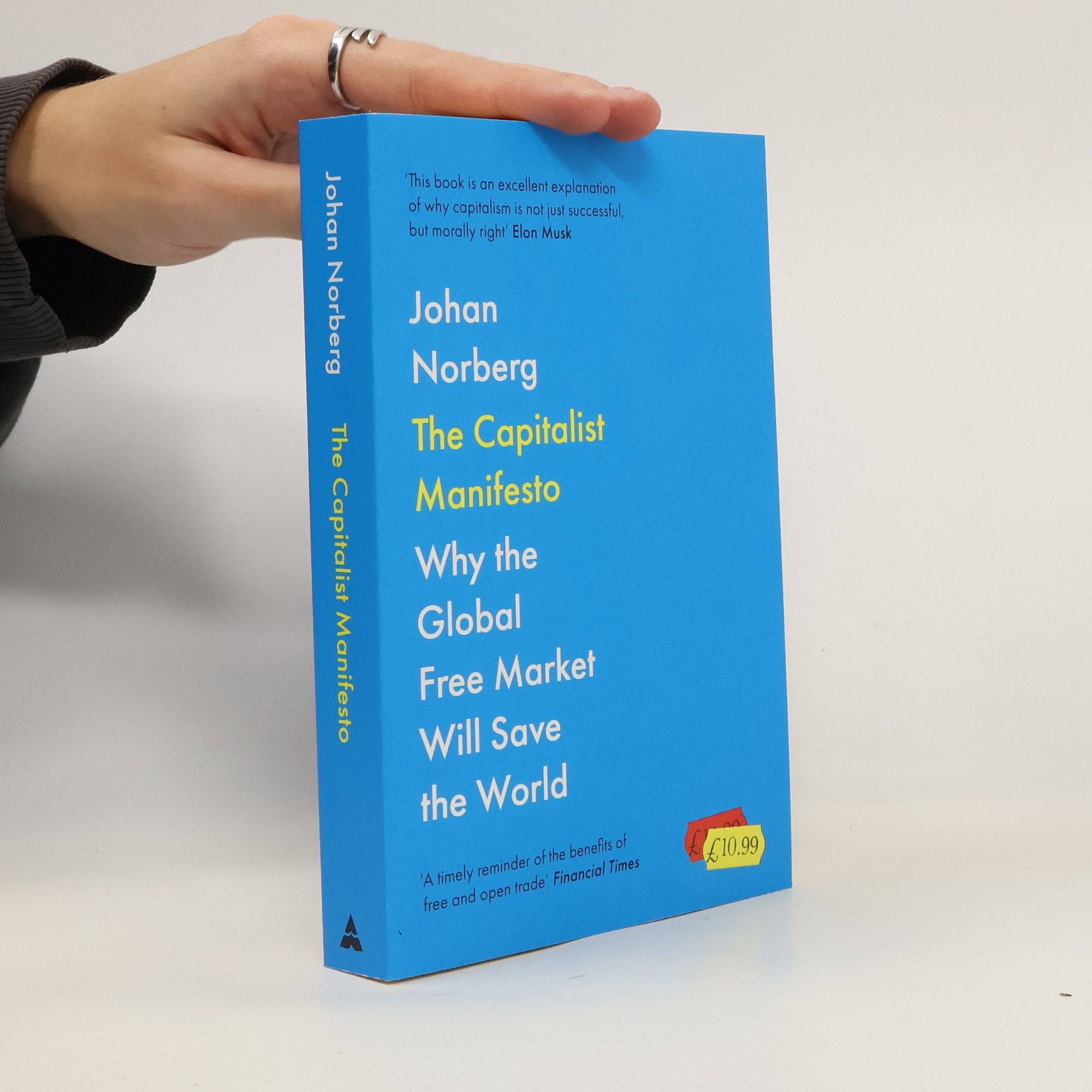A vital exploration of capitalism and the benefits it brings to global society as a whole.
Johan Norberg Libri







Financial Fiasco
- 186pagine
- 7 ore di lettura
To work our way out the economic crisis, and to avoid such meltdowns in the future, we must fully understand how it happened. The chief culprits are now trying to pin the blame on one another—with Congress pointing at Wall Street, financiers blaming the Federal Reserve, who in turn point back to Congress.
Open
- 448pagine
- 16 ore di lettura
A vital exploration of openness and why we must defend it at all costs.
In Defence of Global Capitalism
- 291pagine
- 11 ore di lettura
Marshalling facts and the latest research findings, the author systematically refutes the adversaries of globalization, markets, and progress. This book will change the debate on globalization in this country and make believers of skeptics.
Fortschritt
Ein Motivationsbuch für Weltverbesserer
Unsere Welt scheint zu kollabieren. Jeden Tag werden wir von Nachrichten erschlagen, wie schlimm alles ist – Klimakollaps, Weltsystemcrash, Arbeitslosigkeit, Armut, Krankheit, Hunger und Krieg. Es scheint als stünde unsere Welt am Rande des Zusammenbruchs, und doch haben wir in den letzten 100 Jahren mehr Fortschritte gemacht als in den ersten 100 000 Jahren der Menschheitsgeschichte. Während Politiker, Journalisten und Aktivisten auf allen Seiten über Schäden und Verursacher sprechen, bietet Johan Norberg einen erhellenden und ermutigenden Fortschrittsbericht zur Lösung der größten Probleme der Menschheit. Aller Panikmache und Schwarzseherei zum Trotz sind die Fakten eindeutig: Das goldene Zeitalter ist jetzt.
Weltweit gehen Menschen gegen die Globalisierung und den freien Handel auf die Straße. Nationalistische Tendenzen sind auf dem Vormarsch. Covid-19 und die Finanzkrise haben die Schattenseiten einer vernetzten Welt aufgezeigt. Trotzdem oder gerade deshalb plädiert Johan Norberg für den Erhalt der Offenheit. Brillant kombiniert er historische Lehren mit Erkenntnissen aus der Evolutionspsychologie, um zu erklären, warum der Liberalismus gerade in Gefahr, aber trotz allem der beste Weg zu mehr Wohlstand, Gesundheit und Fortschritt ist. Und er warnt davor, diese Errungenschaften aufs Spiel zu setzen, denn: „Betrachtet man den heutigen Lebensstandard, die Gesundheit, den Wohlstand, die Alphabetisierung und die Freiheit im historischen Kontext, besteht kein Zweifel, dass wir in einem goldenen Zeitalter leben. Aber die Geschichte ist übersät mit goldenen Zeitaltern, die nicht von Dauer waren.“
Manifest kapitalistyczny
- 288pagine
- 11 ore di lettura
Manifest kapitalistyczny. Jak wolny rynek uratuje świat Czy nierówności społeczne mogą być korzystne? Dlaczego nie należy bać się technologicznych monopolistów? I jak to możliwe, z˙e wolny rynek uczy nas hojności? Johan Norberg broni globalnego, wolnorynkowego kapitalizmu przed krytykami – i tymi z lewicy, i z prawicy. Argumentuje, że – na przekór ich tezom – system ten przyczynia się do bogacenia się społeczeństw, umożliwia nam dbanie o środowisko naturalne i jego skuteczną ochronę, a nawet umacnia międzyludzką solidarność i czyni nas szczęśliwszymi. Norberg uważa, że „kapitalizm” to nazwa wyjątkowo niefortunna i niesprawiedliwa – bo sednem tego systemu nie jest kapitał, lecz oddanie kontroli nad gospodarką w ręce miliardów niezależnych konsumentów, przedsiębiorców i pracowników oraz pozwolenie im na samodzielne decydowanie o własnym losie. „Gospodarka rynkowa – twierdzi – polega przede wszystkim na współpracy i wymianie. Chodzi w niej o to, aby razem z innymi zrobić coś, czego nie bylibyśmy w stanie zrobić sami”. A są to zarówno rzeczy trywialne i błahe – choćby zaparzenie filiżanki kawy – jak i najdonioślejsze: czynienie świata miejscem lepszym dla nas wszystkich.